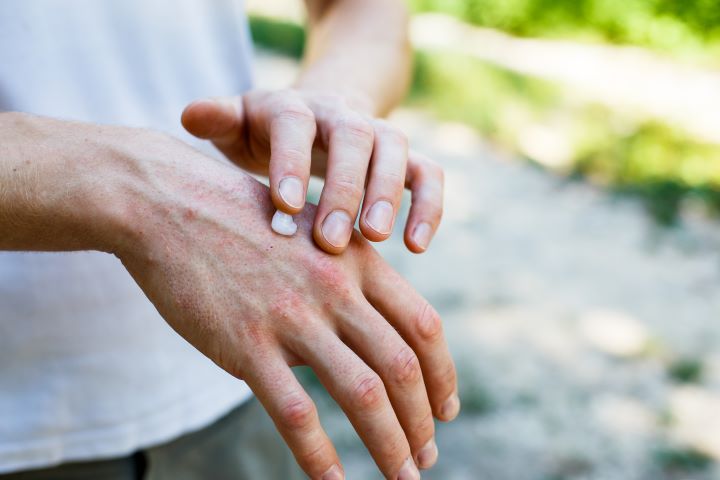Psoriasis under control: symptoms, chances of healing and effective natural remedies
Psoriasis affects millions of people worldwide, causing uncomfortable skin symptoms that can significantly impact daily life. Understanding this chronic autoimmune condition, recognising its various symptoms, and exploring both conventional and evidence-based treatment approaches can help individuals better manage their condition. While psoriasis currently has no definitive cure, numerous effective management strategies exist that can help control symptoms and improve quality of life for those affected.

Psoriasis is a complex autoimmune condition that manifests primarily through skin symptoms, though it can affect other parts of the body as well. This chronic condition occurs when the immune system mistakenly attacks healthy skin cells, causing them to multiply rapidly and form the characteristic patches and scales associated with psoriasis.
Is psoriasis contagious?
One of the most common misconceptions about psoriasis concerns its transmission. Psoriasis is not contagious and cannot be spread from person to person through physical contact, sharing personal items, or any other form of interaction. This autoimmune condition develops due to a combination of genetic predisposition and environmental triggers, rather than infectious agents. Understanding this fact is crucial for reducing stigma and helping those with psoriasis feel more comfortable in social situations.
Symptoms of psoriatic arthritis
Psoriatic arthritis represents a more complex form of psoriasis that affects both the skin and joints. Common symptoms include joint pain and stiffness, particularly in the morning or after periods of inactivity. Swelling in fingers and toes, known as dactylitis, creates a distinctive “sausage-like” appearance. Many individuals experience fatigue, reduced range of motion, and nail changes such as pitting or separation from the nail bed. The condition can affect any joint in the body, from small joints in hands and feet to larger joints like knees and spine.
Is psoriasis curable?
Currently, there is no definitive cure for psoriasis, but this does not mean the condition cannot be effectively managed. Modern evidence-based treatment approaches focus on controlling symptoms, preventing flare-ups, and maintaining long-term remission periods. Many individuals achieve significant improvement in their symptoms through appropriate medical treatment regimens. The key lies in working with healthcare professionals to find the right combination of proven treatments that work for each person’s specific situation, as psoriasis affects everyone differently.
Treatment of psoriatic arthritis with homeopathy
Some individuals explore homeopathic approaches for psoriatic arthritis, though it’s important to note that homeopathy lacks robust scientific evidence for effectiveness in treating psoriasis or psoriatic arthritis. While homeopathic practitioners may suggest various remedies, these treatments are not supported by clinical research and should not replace conventional medical care. The scientific consensus indicates that homeopathic remedies work no better than placebo. Anyone considering homeopathic treatment should discuss this with their healthcare provider and continue with evidence-based treatments prescribed by qualified medical professionals.
Natural remedy for psoriasis
While some lifestyle modifications may provide supportive benefits alongside medical treatment, it’s crucial to understand that natural approaches should complement, not replace, evidence-based medical care. Some individuals report that dietary changes, such as reducing inflammatory foods, may help with overall wellbeing, though scientific evidence for specific dietary interventions remains limited. Stress management techniques like meditation and exercise may help with general health and potentially reduce stress-related flare-ups. However, these approaches lack strong clinical evidence for treating psoriasis specifically and should always be discussed with healthcare providers before implementation.
| Treatment Type | Provider/Method | Cost Estimation |
|---|---|---|
| NHS Dermatology Consultation | National Health Service | Free |
| Private Dermatologist | Spire Healthcare, BMI Healthcare | £200-400 per consultation |
| Homeopathic Consultation | Society of Homeopaths registered practitioners | £60-120 per session |
| Phototherapy | Private clinics | £50-100 per session |
| Lifestyle Support Programs | Private wellness centres | £30-80 per session |
Prices, rates, or cost estimates mentioned in this article are based on the latest available information but may change over time. Independent research is advised before making financial decisions.
Managing psoriasis effectively requires working closely with qualified healthcare professionals who can provide evidence-based treatment options. While the condition cannot be cured, many people successfully control their symptoms through proven medical treatments and maintain active, fulfilling lives. The most effective approach involves following established medical protocols while maintaining open communication with dermatologists and other healthcare providers about treatment progress and any concerns.
This article is for informational purposes only and should not be considered medical advice. Please consult a qualified healthcare professional for personalized guidance and treatment.




